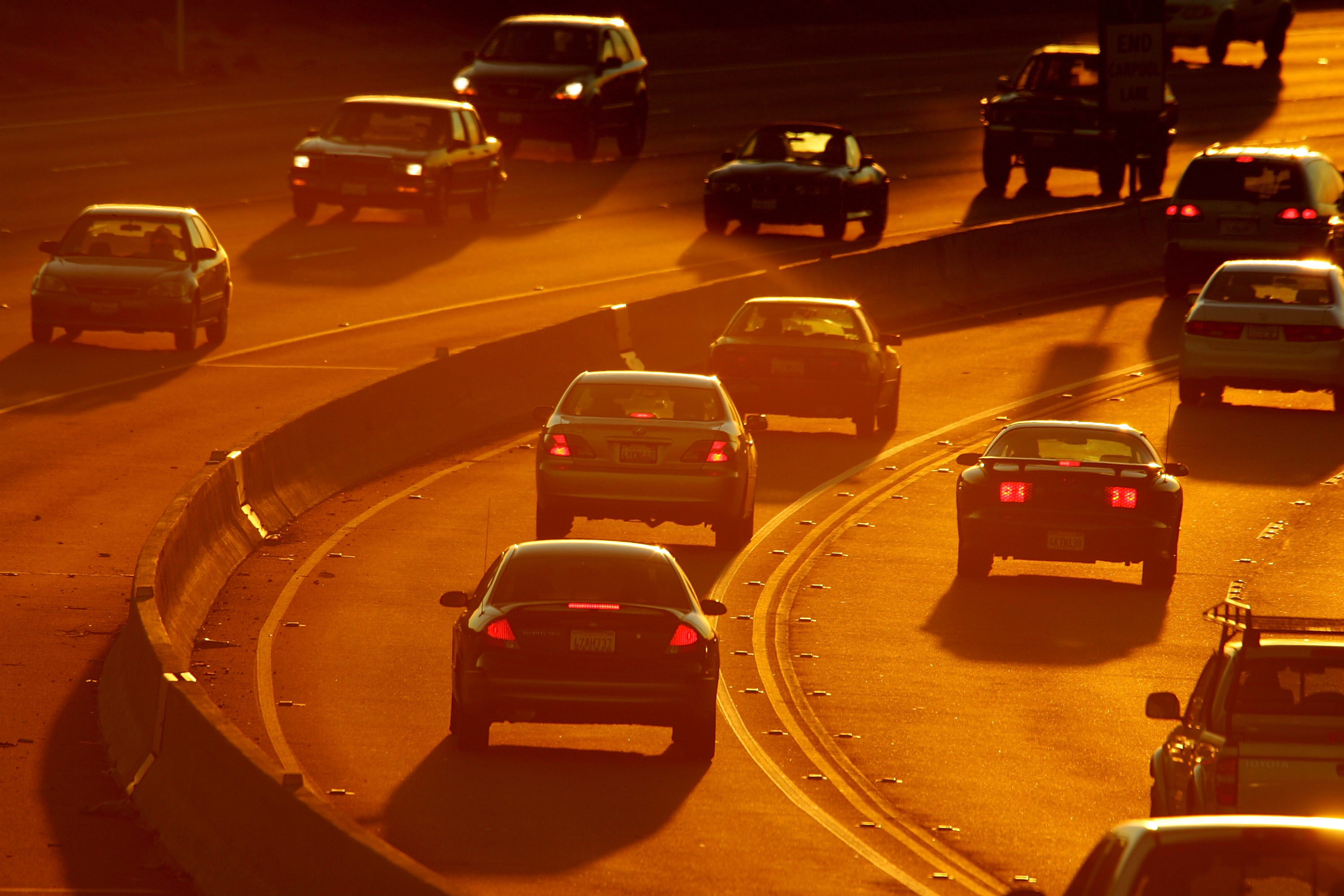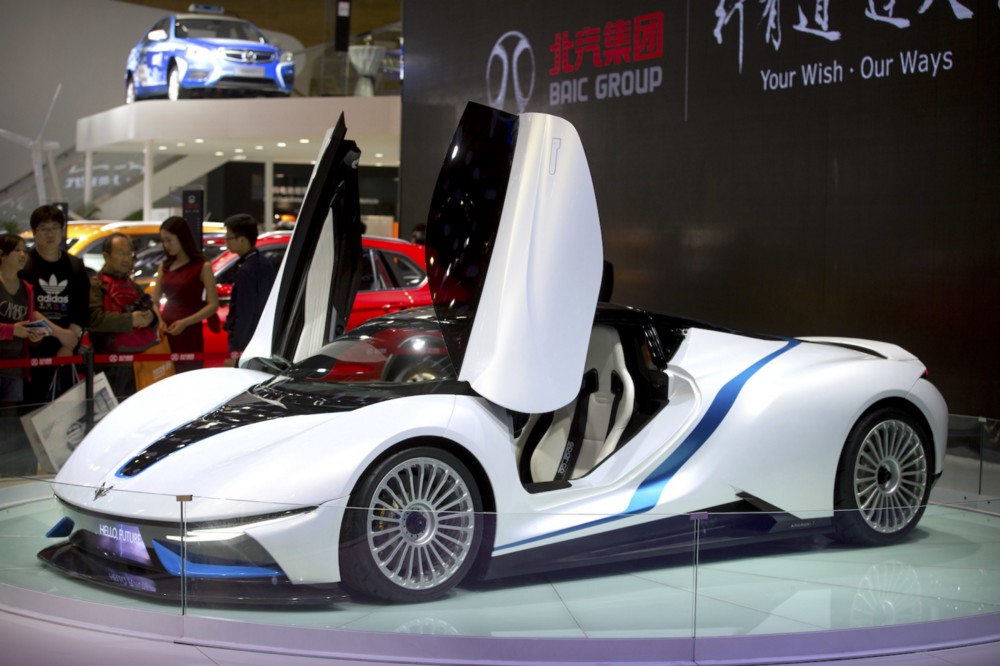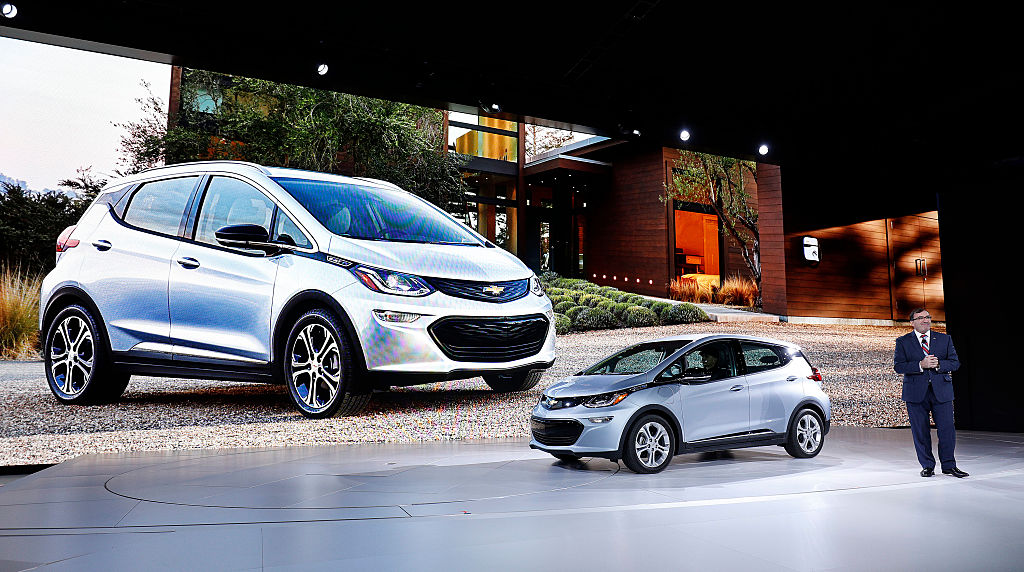The Environmental Protection Agency (EPA) announced plans on Monday to roll back tailpipe emissions standards for automakers established by the Obama administration. The decision is expected to increase greenhouse gases and other harmful emissions from the transportation sector — the largest carbon-emitting sector in the nation.
According to EPA Administrator Scott Pruitt, proposed greenhouse gas emission standards for cars, pick-up trucks, and sport utility vehicles for model years 2022-2025 are too aggressive. The EPA will be opening a process with the National Highway Traffic Safety Administration to develop a new rule setting greenhouse gas emission standards, the agency said Monday.
“The Obama EPA’s determination was wrong,” Pruitt said in a statement. “Obama’s EPA cut the midterm evaluation process short with politically charged expediency, made assumptions about the standards that didn’t comport with reality and set the standards too high.”
In 2012, the Obama administration approved new auto emissions standards, with 2018 model year vehicles required to average 38.3 miles per gallon of gasoline and 54.5 miles per gallon by 2025. The 2025 target was set as part of a compromise reached between the Obama administration and the auto industry.
Environmental and energy efficiency groups accused Pruitt of siding with the fossil fuel industry by seeking to weaken the fuel efficiency standards.
“These roll-backs from Scott Pruitt mean Americans will pay more at the pump while our air gets dirtier, just so Pruitt can help the corporate lobbyists and polluters who give him favors and marching orders,” Sierra Club Executive Director Michael Brune said Monday in a statement. “Pruitt cannot deny the fact that these widely-supported clean car standards will drive down pollution and cut costs for Americans at the pump.”
Weakening fuel economy standards for vehicles will mean higher fuel costs for consumers and more greenhouse gas emissions and sacrificing our energy security, Alliance to Save Energy Vice President Ben Evans said in response to Pruitt’s announcement.
“There’s no good reason for these standards to be sabotaged,” Evans said. The Alliance to Save Energy is a bipartisan alliance of business, government, environmental, and consumer groups that works to expand the economy while reducing energy consumption.
For decades, the power sector had been the nation’s biggest source of carbon emissions. But for the past two years, transportation has been the largest single source of air pollution in the U.S. and contributes to conditions like asthma and bronchitis. Particulate matter, a major pollutant from motor vehicles, alone accounts for as many as 30,000 premature deaths annually.
From 1975 through 2008, fuel economy standards generated $2.1 trillion in savings for consumers, according to the Consumer Federation of America. A new car meeting the 2025 standards, the Natural Resources Defense Council notes, would save a consumer about $4,000 in fuel over the life of the vehicle compared to the average car meeting 2017 standards.
The decision opens the door for the National Highway Traffic Safety Administration to propose lowered corporate average fuel economy, or CAFE, standards, which are used to establish fuel economy for vehicles. The lower standards are expected to directly threaten public health, consumer costs, and U.S. jobs.
The Alliance of Automobile Manufacturers, which represents 12 of the largest auto companies, urged the Trump administration to roll back the fuel economy standards, stating that they are too costly to meet.
But a Honda Motor Co. executive told the New York Times that the relaxation of fuel efficiency standards is not the “sensible” plan that automakers requested. “We didn’t ask for that,” said Robert Bienenfeld, an assistant vice president at American Honda Motor.
Research shows that automakers are already making good progress toward the standards. The Alliance of Automobile Manufacturers has been criticized for requesting the rollback while at the same time touting its members’ increased investments in electric vehicles.
Under the Clean Air Act, the EPA sets national standards for vehicle tailpipe emissions of certain pollutants. Through a Clean Air Act waiver granted by the EPA, California can impose stricter standards for vehicle emissions of certain pollutants than federal requirements. The agency said it is still examining California’s waiver.
“Cooperative federalism doesn’t mean that one state can dictate standards for the rest of the country,” Pruitt said. “EPA will set a national standard for greenhouse gas emissions that allows auto manufacturers to make cars that people both want and can afford — while still expanding environmental and safety benefits of newer cars.”
It is in the nation’s best interest to have a national standard, according to Pruitt. “We look forward to partnering with all states, including California, as we work to finalize that standard,” he said.
BREAKING: The EPA is moving to weaken landmark clean car standards designed to slash carbon pollution and save drivers $92 billion at the pump: https://t.co/cKZPMD7gyM pic.twitter.com/H3F19XIBrA
— NRDC 🌎 (@NRDC) April 2, 2018
California Attorney General Xavier Becerra said he is prepared to sue the EPA if it tries to weaken Obama-era vehicle efficiency standards.
“The Trump Administration’s assault on clean car standards risks our ability to protect our children’s health, tackle climate change, and save hardworking Americans money,” Becerra said Monday in a statement.
The attorney general said his office is currently reviewing the EPA’s determination and working closely with the California Air Resources Board. “We’re ready to file suit if needed to protect these critical standards and to fight the Administration’s war on our environment,” Becerra said. “California didn’t become the sixth largest economy in the world by spectating”
One of the stipulations of the government’s bailout of the U.S. auto industry in 2009 was that the companies had to develop aggressive plans to become profitable again by reducing costs and investing in energy-efficient cars. Both General Motors and Chrysler agreed to move toward a more fuel-efficient fleet.
But automakers are now saying Pruitt’s decision was the right one in order to keep vehicles affordable.
Gloria Bergquist, a vice president for the Alliance of Automobile Manufacturers, said in a statement, “This was the right decision and we support the administration for pursuing a data-driven effort and a single national program as it works to finalize future standards.” The trade group represents General Motors, Ford, Fiat Chrysler and others.



